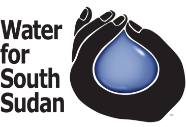Our Commitment to Sustainability
What does sustainability mean to WFSS?
As we begin our 20th drilling season, we reflect on our values, aspects ingrained in our culture, and what we can do to continue bringing high-quality services to the people of South Sudan. A key component of our mission is sustainability—a loaded word that can often mean many things. To us, it means that we consistently strive to minimize our environmental impact, maintain transparency, practice cultural competency, and empower communities with the support they need to ensure that their wells work for years to come.
Our key sustainability practices
A particular point of pride is that our entire team in South Sudan is East African and 99% South Sudanese. We make the most significant impact when we rely on the expertise of people who know South Sudan’s culture, can speak multiple local languages, and understand the burden that communities face when they don’t have access to clean water. We are most effective when we elevate the voices and experiences of the South Sudanese people and follow their lead.
“A major component of maintaining water supply is VLOM, or Village Level Operations & Maintenance,” says WFSS Operations Coordinator Gary Prok. An engineer with years of experience, Gary works from our U.S. office and is constantly in touch with our drilling team in South Sudan, where he lends his support to our team. He has also been on several field visits to South Sudan. The overarching goal of VLOM, he says, is to ensure that communities will have the supplies, connections, and funds to maintain their wells without further support from WFSS, freeing our teams to drill more wells and bring clean water to even more communities.
How clean water affects sustainability
Clean water changes every life it touches. It’s the first step toward health, peace of mind, and the basic freedom of available water. When community members feel invested in their wells and are empowered to maintain them, clean water will likely continue flowing. It’s standard practice that every time we drill a well, several community members are trained on basic repairs and given the supplies and tools necessary to make these simple adjustments. It’s also common practice for WFSS to return to our wells to monitor and evaluate their effectiveness and make more serious repairs if necessary. Recent improvements include using higher-quality cement and an improved cement mixing process, making it less likely to crack and cause future problems.
We also require that community members construct a fence around each well. The fence is typically made of locally sourced wood and is designed to keep animals from trampling the well platform and cracking the cement. The South Sudanese economy is powered mainly by livestock, such as goats and cattle, that also need access to clean water, and we know that protecting the well from any animal contamination is essential to maximizing our impact.
Ensuring sustainable communities
Our team also knows access to local supply chains and the funds to maintain wells are essential. We’ve piloted several water savings committee programs to sustain wells with community funds and are monitoring the effectiveness of such projects. Additionally, we strive to improve our training methods and further institutionalize knowledge about well maintenance amongst community members.
Together, we are uniting to water the seeds of change in South Sudan. Thank you for supporting this invaluable work.



